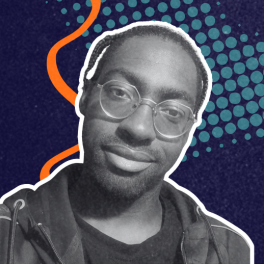
I am Rafi Soomro, and by the time I turned 12, I had become ashamed of my name. It all started when I switched schools. Before that, life was great; I had everything I needed. I was very excited when I got admission into the new school because it was very well-reputed. I thought this would open new opportunities and be a turning point in my life.
My first priority at the new school was to make friends and get adapted to the new environment. My teacher asked me to introduce myself to the class. At the moment, I felt a little awkward, but I still managed to gather my words. I started out with my name, and as I said my last name, the class burst into giggles. I had no idea what was so funny, but the teacher shushed them. Despite the rush of embarrassment, I continued.
After I finished telling a bit about myself, the teacher told me to sit with one of the other students. This person hadn’t laughed at me much, so I was relieved in a way; he seemed like a decent guy to me. We had a little conversation, and he introduced himself as Ali. I wanted to know why the class had laughed at me, so I asked him. He told me, “You weren’t able to speak properly”. I found this absurd, as I had been speaking like this all my life and never knew I had a problem. So I just ignored him and didn't talk to him much more than that.
As days went by, I tried talking to the other boys, but all of them just laughed and made fun of me. Soon, I started realizing that I was, in fact, unable to speak properly. I had a lisp and I stuttered. The irony of the whole situation added insult to injury; I couldn’t even pronounce my own name correctly. Whenever I spoke to someone, I had to repeat everything two or three times. I dreaded even introducing myself because my last name unfortunately started with an “S” which I couldn’t pronounce correctly. I was already an introvert… and now this. How much can a 12-year-old handle? Everywhere I went, people would seemingly make fun of me. The only person who talked to me was Ali.
As time went by, we became really good friends, but I increasingly felt like a laughing stock. While everyone laughed at me, Ali would just smile. It was a kind smile, encouraging me to do better. He also began helping me correct my pronunciation by doing some online research on how to overcome a lisp. Sadly, I wasn’t able to make progress at first. After a year of trying and seeing no results, the bullying got to me, and soon I fell into the depths of despair. I started becoming quieter and quieter with time and kept to myself.
Gradually, I got used to it. While I had accepted my fate and succumbed to it, Ali still really wanted to see things get better for me. He still feverishly tried to help me improve my speech; his enthusiasm was contagious, and soon I began trying again. Implementing the techniques he had researched one by one and practicing regularly, I began to see results in about another year; my lisp had noticeably gotten better, and I began to stutter less and less. While I still couldn’t muster up a perfect “S” sound, it was a stride in the right direction.
As my lisp improved, my lost sense of confidence started to return. And I continued on practicing with Ali. A few weeks after I started to notice improvement, we found out our school was conducting a non-extempore speech competition, and Ali encouraged me to participate. While a year prior, I would have outright refused and would have been absolutely terrified, but now, I wanted to prove myself.
I practiced my speech over and over with Ali until the day finally came, and I went for it. Heart thumping against my chest, threatening to burst out, I stepped onto the podium and started speaking. There was still a very noticeable lisp, but to my surprise, I was not met with a grinning audience but a surprised one. People were impressed because of my improvement, and this encouraged me. Despite, stuttering a bit in multiple sentences, I didn’t stop and concluded my speech as best as I could. Although I didn’t win, I was proud of myself for speaking in front of such a big crowd, and that was only the beginning.
It has been 2 years since then, and I have continued on the path of public speaking, participating in debate competitions and Model United Nations regularly. Additionally, I have counseled 2-3 kids with the same problem as mine. Helping them, as Ali helped me. I also encouraged them to get the help of professional speech therapists, because I have realized that while it was enough for me to mostly overcome this obstacle by practicing with Ali, for others, this might not suffice, and they may need professional help.
It has been 4 years since the bullying started, and the social ostracism has left a lasting impact on my mental well-being. Despite overcoming this obstacle, the effects of that bullying will linger on, likely following me for the rest of my life. Lastly, I would like to say that if you live with a speech difficulty or disability, don’t let it define who you are or limit what you can achieve. You can take back some control. It is hard for a person to come out of a state of dispair once he goes into it, but it is definitely possible, so keep trying. There will always be people in life who will push you down, but there will also be friends like Ali, who pull you up along with them. Choose whose hand to grab and remember: no one can make you inferior without your consent.
Support Young Creators Like This One!
VoiceBox is a platform built to help young creators thrive. We believe that sharing thoughtful, high-quality content deserves pay even if your audience isn’t 100,000 strong.
But here's the thing: while you enjoy free content, our young contributors from all over the world are fairly compensated for their work. To keep this up, we need your help.
Will you join our community of supporters?
Your donation, no matter the size, makes a real difference. It allows us to:
- Compensate young creators for their work
- Maintain a safe, ad-free environment
- Continue providing high-quality, free content, including research reports and insights into youth issues
- Highlight youth voices and unique perspectives from cultures around the world
Your generosity fuels our mission! By supporting VoiceBox, you are directly supporting young people and showing that you value what they have to say.





